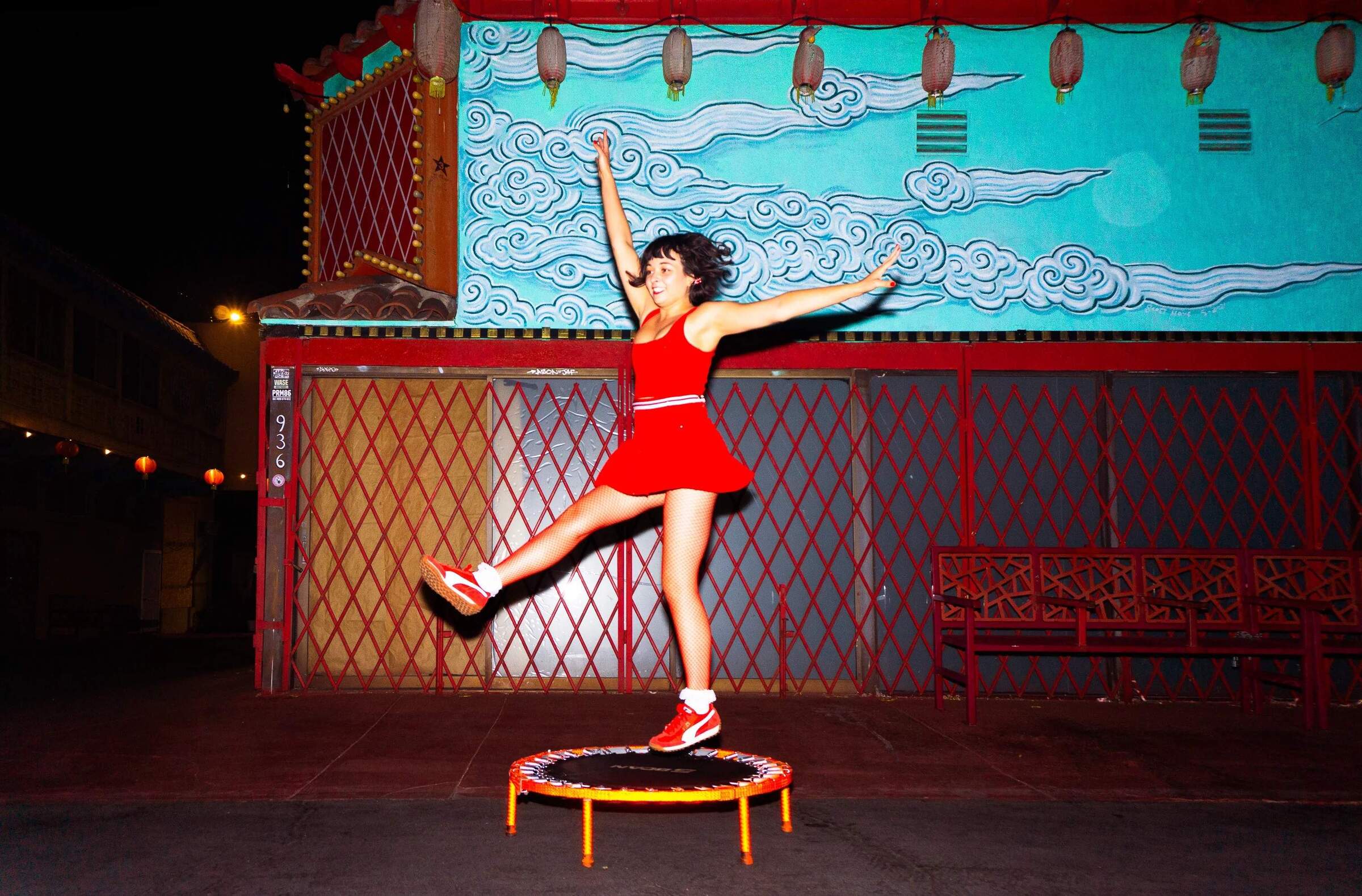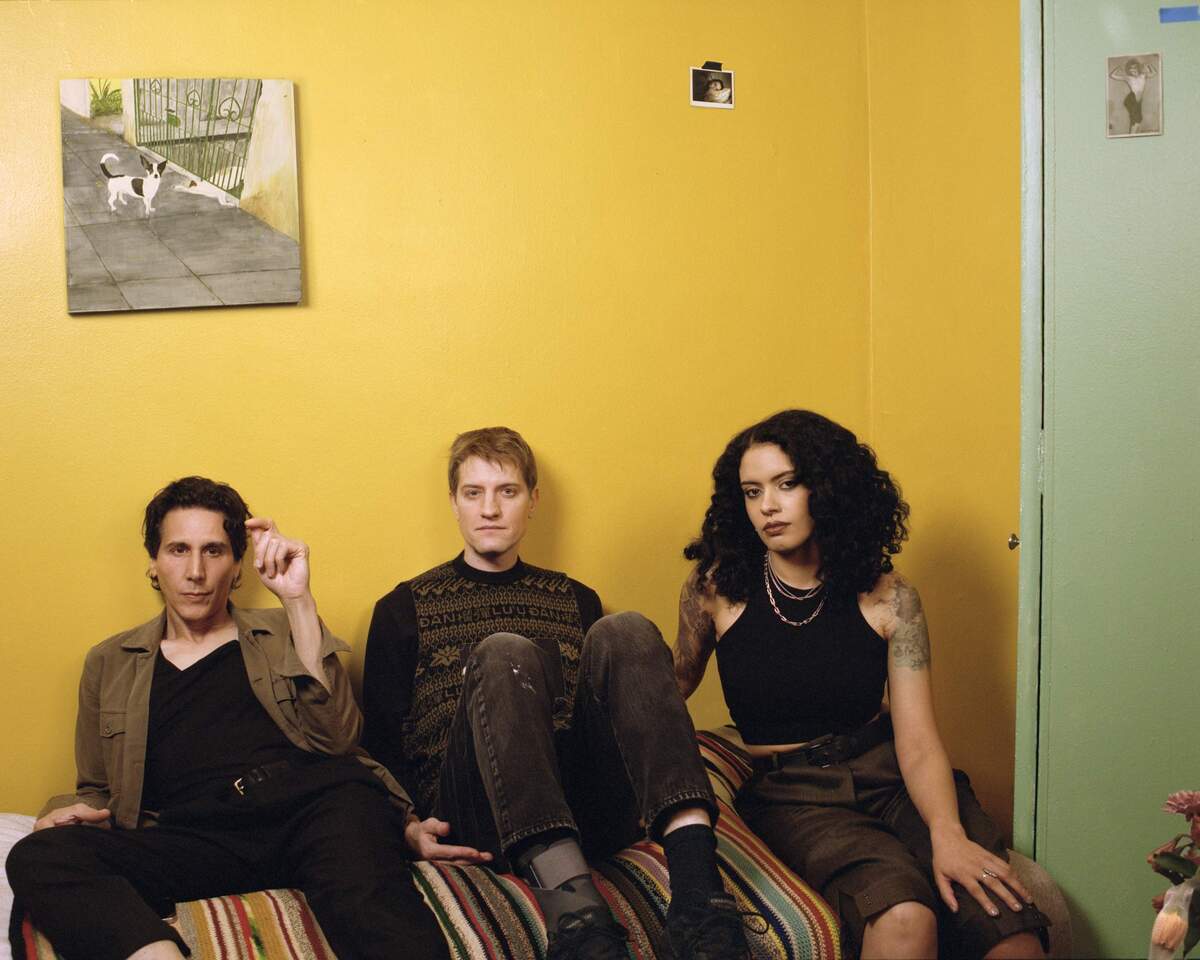Kikagaku Moyo interview with Go Kurosawa
Welcome to the free-form space that is Kikagaku Moyo. A land where sitars and trippy long drones are just as at home as tightly honed heavy riffage and infectious pop melodies in the Eastern vibes, mingling to create a new breed of psychedelia all its own.
A tightly honed variety of absolutely free-form, warts and all studio performances which encompass all that’s sacred and holy about the genre with out being muddied by influences or constrained by tradition. Turning on a dime from bouncing, almost reggae-esque and funky melodies into heavy, hard space psych, Kikagaku Moyo seem to travel wherever the moment takes them, their music more an emotional extension of their frame of mind at that particular moment than an attempt to make any kind of grandiose statement about something or anything like that. If you’re into heavy space trips, I mean literally just loosing yourself in the music and spacing out of reality completely, only a tenuous guitar riff as a lifeline tethering you to the terra of planet earth – Kikagaku Moyo is the band for you. From luscious soundscapes and sprawling, thunderous dronage, the cold deafening silence of deep space and some absolutely eaten up, fuzzed out, distorted riff fests, it’s hard to find a band that better encompasses the psychedelic label in my humble opinion. Since Kikagaku Moyo formed in 2013, they’ve released two full-length albums and an EP, which until now have been extremely hard to come by in a lot of places, but that’s all about to change. The awesome folks out at Captcha Records have decided to reissue both Mammatus Clouds, which was at one time a cassette limited to only 100 copies, and the self-titled Kikagaku Moyo which has been out of print since 2013. That announcement was all it took, the little push I needed to track down this extremely busy band, and track them down I did. In between tours and recording sessions founding member, singer and drummer Go Kurosawa took some time to answer a ton of questions as per usual. Kick back with some tunes at the link below and let the trip carry you off, It’s Psychedelic Baby! (Listen while you read)
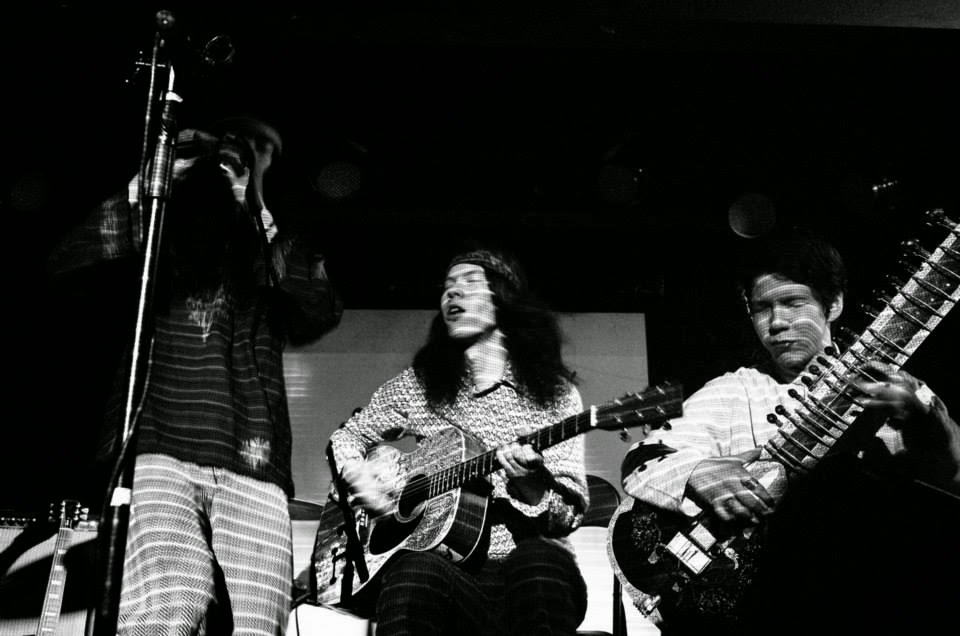
What is Kikagaku Moyo’s lineup at this point? Is this the original lineup or have all made any changes to the lineup since the band’s inception?
Actually, the original line up was just Tomo and me, but we’re currently a five piece.
Vocals/Guitar: Tomo Katsurada
Guitar: Daoud Popal
Sitar: Ryu Kurosawa
Bass: Kotsuguy
Drums/Vocal: Go Kurosawa
Are any of you involved in any other bands or do you have any active side-projects going on at this point? Have you ever released anything with anyone in the past? If so, can you tell us a little about that? I love playing musical connect the dots!
None of us except me has ever played in a band before. I was playing bass in this band called Deigen.
How old are you and where are you originally from?
We’re all in our twenties and from Tokyo except Tomo whose from Ishikawa and Kotsuguy from Fukushima.
What was the local music scene like there when you were growing up? Did you see a lot of shows when you were younger? Do you feel like the local scene there played a large or important role shaping your musical tastes or the way that you perform at this point?
Music shows in Japan are too expensive for us now, especially so when we were younger. Most shows cost at least twenty dollars. We took pretty much zero influence from the local music scene in terms of the towns where we grew up, but we were influenced by many great bands from Japan, of course.
If you were to pick a single defining moment of music in your life, a moment that seemed to change everything and opened your eyes to the infinite possibilities of art, what would it be?
Honestly speaking, I don’t really think of music, especially our music, as art. To me, the word “art” means something that is high-brow or conceptual, whereas music is something more primitive and impulsive, something that brings pleasure to both the body and soul.
When did you decide that you wanted to start writing and performing your own music? What brought that about for you?
I wrote my first song when I was about nine years old. The house I grew up in was between a shrine and a temple that had lots of trees, even in the center of Tokyo. I whistled a song, trying to communicate with the birds who came around the house. My mother was a music teacher, so she added a piano accompaniment.
What was your first instrument? When and how did you get that?
Piano. I was about four years old, and the piano was already in my house before I was born.
How and when did you all originally meet?
Tomo and I first met in Tokyo. Tomo found Daoud in a smoking area of the university that they both attended. We found Kotsuguy on the street, where he was recording the noises from vending machines for his drone project. Ryu’s my brother and happened to came back from his sitar training in India.
What led to the formation of Kikagaku Moyo and when would that have been?
I met Tomo again after his study abroad program in the States. We had a lot of similar interests in music, fashion, and movies, so we decided to play music together. That was in the summer of 2012.
What does the name Kikagaku Moyo mean or refer to? Who came up with it and how did you all go about choosing it?
It means geometric patterns, which I saw on the back of my eyelids after jamming all night long. I was totally in the “zone”, half awake and half asleep, but my hands were tapping the drums involuntarily. Tomo and I both wanted to have a Japanese name with Kanji characters, so it was decided pretty quickly.
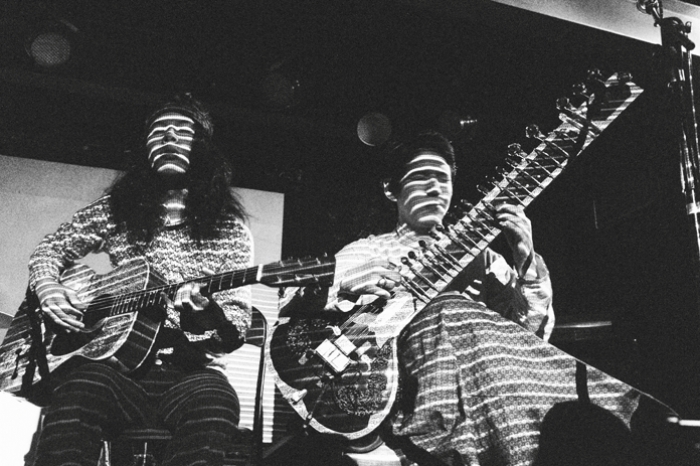
Where’s Kikagaku Moyo located at these days?
Tokyo, Japan.
How would you describe Kikagaku Moyo’s sound to our readers who might not have heard you before in your own words?
It’s always different depending on our moods. We’ve played everything from acoustic jam sets to hour-long fuzzed out sets. Please come to see our gigs if you have a chance, we can’t even predict what we’ll experience with you.
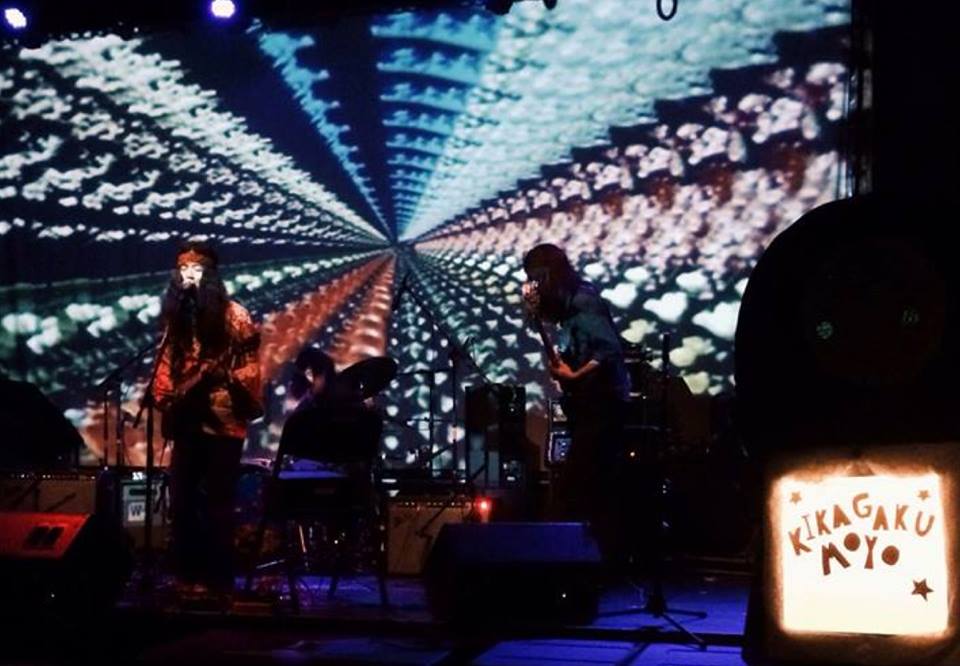
You all have an extremely interesting and varied sound steeped in psychedelic mysticism from what I’ve heard. Can you talk about who some of your major musical influences are? What about influences on the band as a whole rather than just individually?
We’re more inspired rather than influenced by other bands. Most recently, I was inspired by Bo Ningen at Austin Psych Fest. I got so much energy from their set and felt like I wanted to dive into the crowd. There are no specific bands that influenced our band as a whole, because everyone listens to totally different music.
What’s the songwriting process like for Kikagaku Moyo? Do you all do a lot of jamming, and kind of kick ideas back and forth until you distill a song from the exchange? Or is there one of you all who usually comes in with a riff or more finished idea to share with and work out with the rest of the band?
We don’t have a set method of writing music. Sometimes we go into the mountains and jam/record or busk in front of the station all day. Sometimes one of us will write a whole song and then we’ll arrange it as a band. And sometimes, one of us will tell a story that everyone likes, and we’ll try to express that story in music.
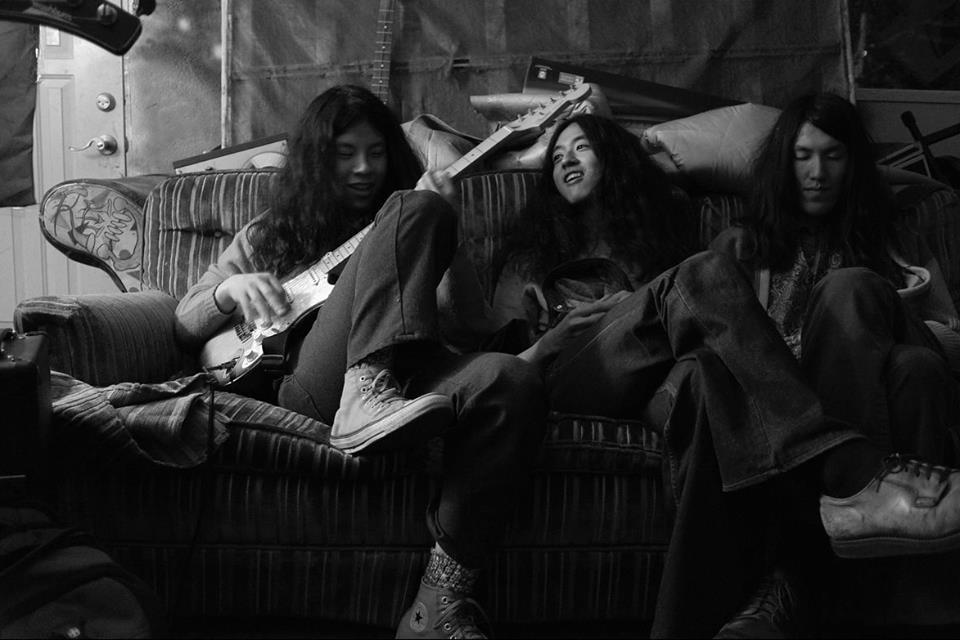
What’s about recording for Kikagaku Moyo? I’m a musician myself and I think that most of us can obviously appreciate the end result of that time, work and effort. But getting to that point, getting things to sound like they should, and especially doing that as a band, can be extremely difficult to say the very least. What’s it like recording for Kikagaku Moyo?
We have never recorded a song for more than two takes. We just enjoy playing music in the recording studio as usual, even if someone makes a mistake, that’s the real us and mistakes can sometimes turn into really interesting peculiarities [laughs]. We don’t know the final result until the very end, but so far we’ve always been satisfied with the outcome.
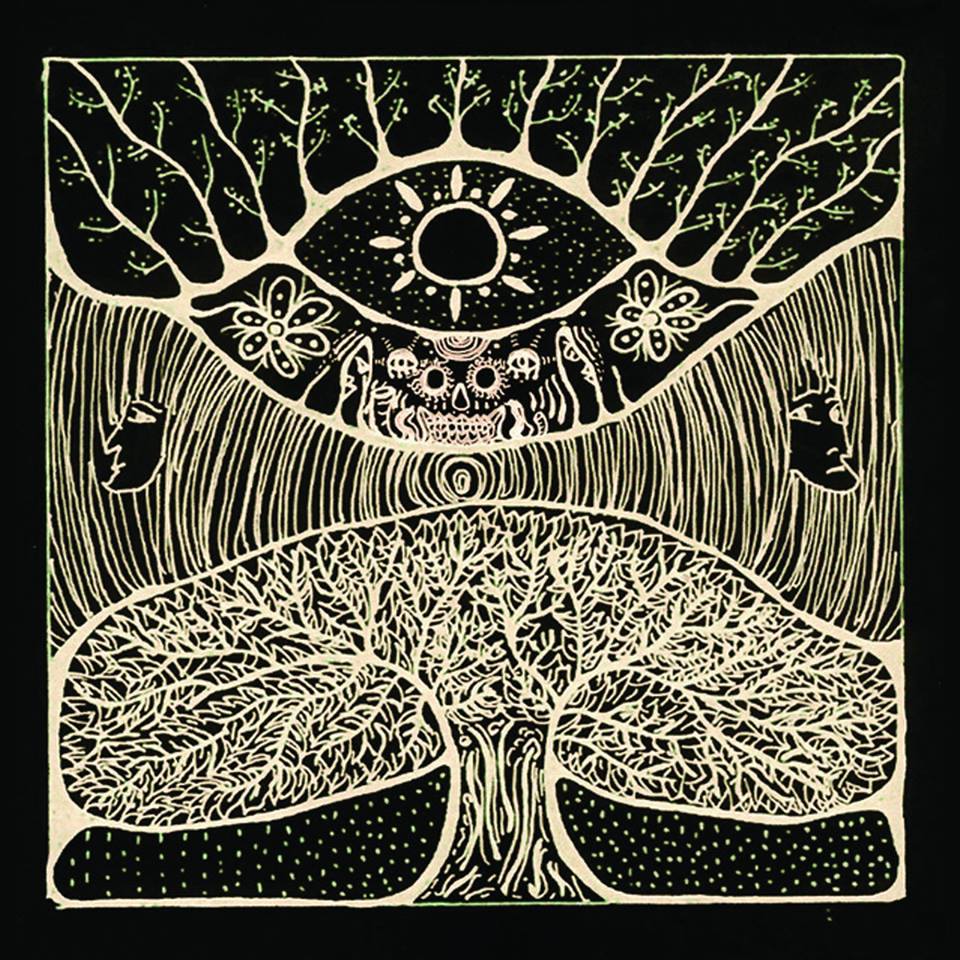
Do you all prefer to take a do-it-yourself approach to recording where you all handle things on your own time and turf? Or do you all like to head into a studio and let someone else handle things so you can concentrate on performing?
Both of the albums were recorded by Yui Kimijima at Tsubame Studio. He started out his career by denying traditional recording theory. Like for instance, you have to use certain microphones for capturing the sound of snare drums, and so on. He thinks the most important thing is the outcome, regardless of what microphone you use or how. If it sounds interesting, it’s good. We trust him and ask him to throw out any ideas to make the music sound more interesting.
Is there a lot of time and preparation that goes into a Kikagaku Moyo recording session where you all work out every single part of a song and know exactly how everything is going to play out before you hit the record button or the first note? Or is it more of a situation where you get a good idea of how something should sound and then give it room to change and evolve during the recording process?
We prepare the songs for recording because we have limited time, but we want to preserve our initial energy in the recorded track, so we avoid doing retakes.
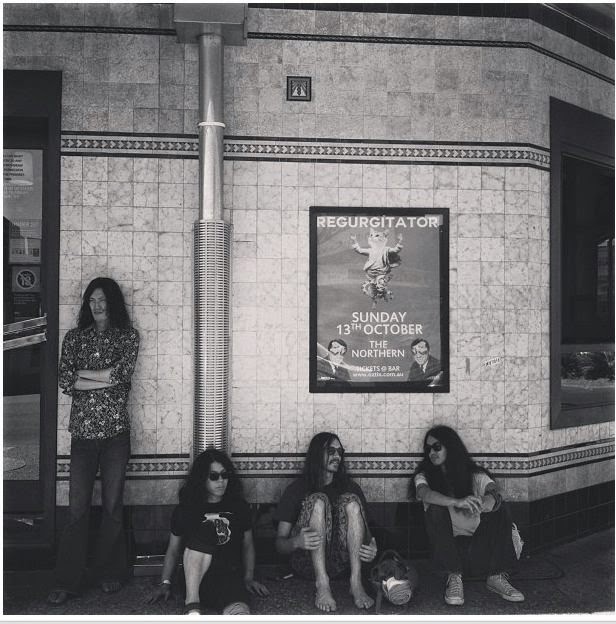
2014 has been a busy year already for you all, you’ve put two things out the first being the Forest Of Lost Children LP for Beyond Is Beyond Records. Was the recording of Forest Of Lost Children very different than the session(s) for Kikagaku Moyo? When and where was Forest Of Lost Children recorded? Who recorded it? What kind of equipment was used for Forest Of Lost Children? I know that both Kikagaku Moyo and Mammatus Clouds were limited edition affairs, is Forest Of Lost Children a limited release? If so, do you know how many copies that’s limited to?
Forest of Lost Children was recorded at the same studio and with the same person. Our self-titled album is going to be re-issued by Cosmic Eye/Sound Effects Records in EU and Captcha Records in the US.
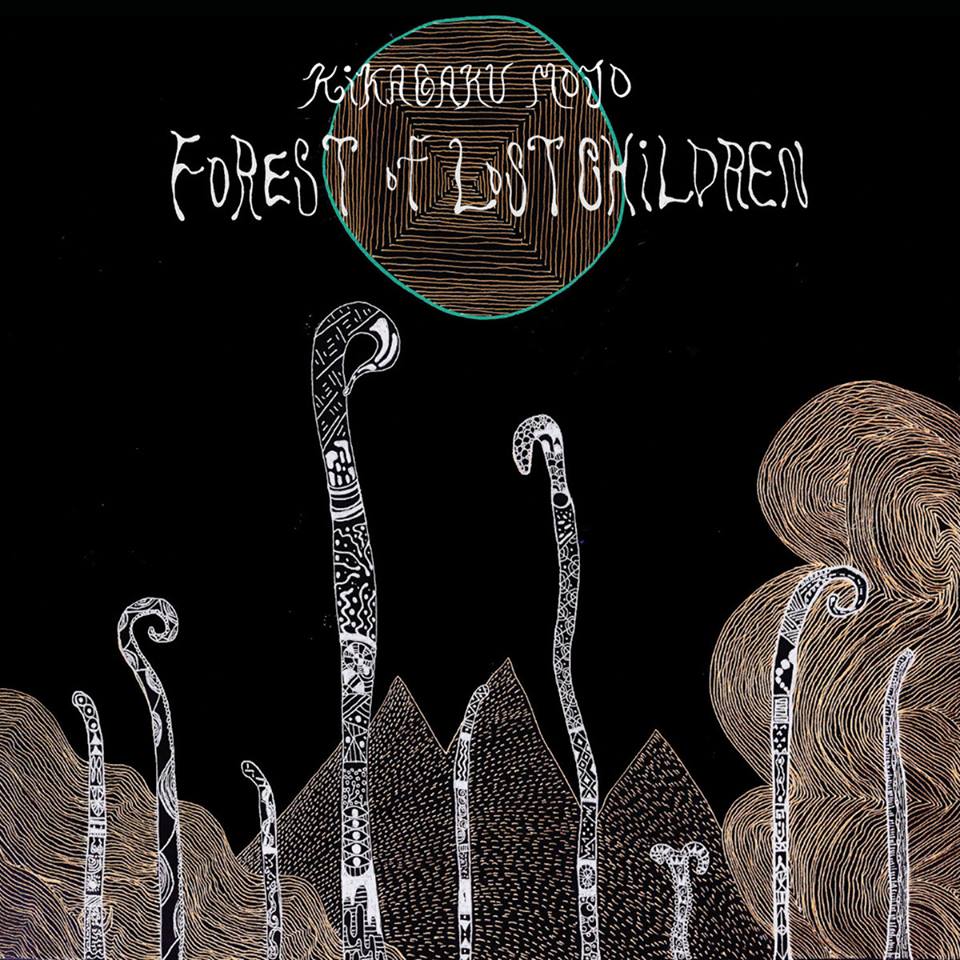
Your second release of the year is the Mammatus Clouds cassette for Sky Lantern Records limited to only 100 copies and soon to be re-released by Captcha on 12” record. Did you try anything new or radically different with the writing or recording of the material for Mammatus Clouds? When was that material recorded? Who recorded it? Was it very similar to the session(s) for Forest Of Lost Children? What kind of equipment did you use this time around?
The A-side of Mammatus Clouds is a pure live recording without any mix/overdubs. It was a totally improved session recorded in the beginning of 2014. We only used a floor tom for the drum, Daoud played percussion and bells, Kotsuguy played the organ, and Tomo played the guitar and violin.
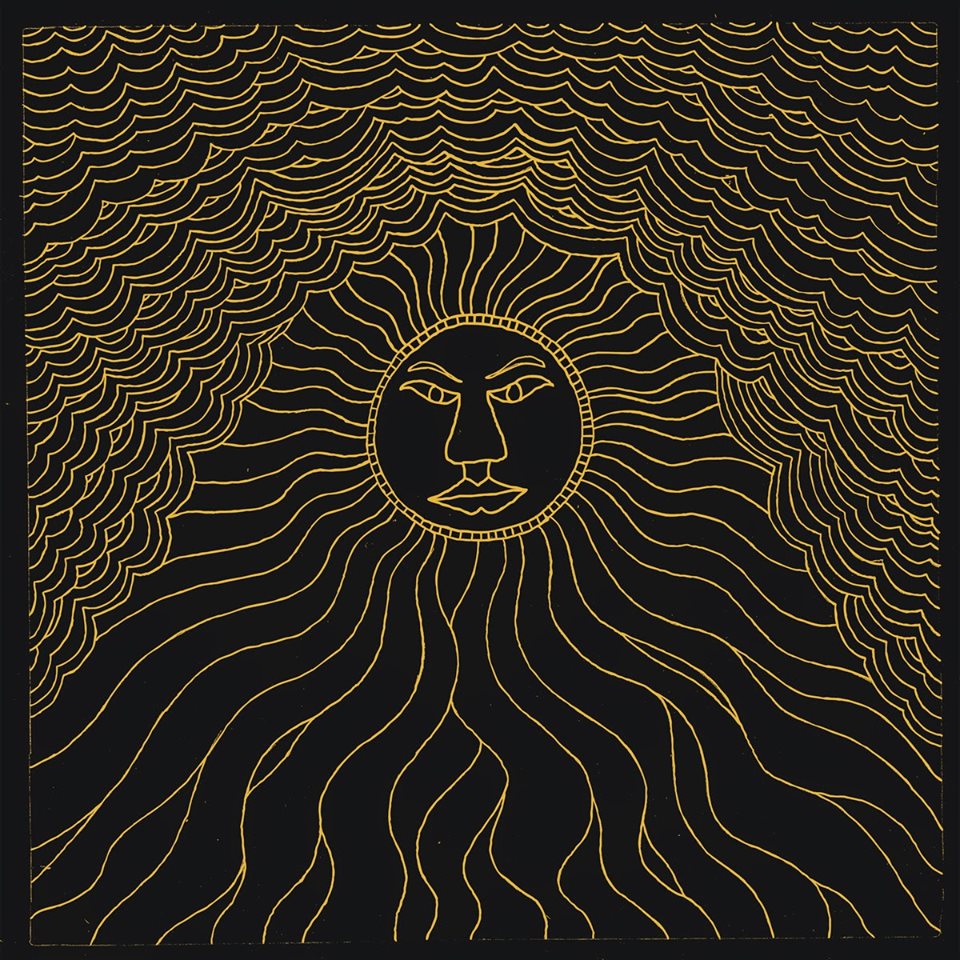
Originally both your self-titled album and Mammatus Cloud were released in pretty limited quantities, but Captcha Records is getting ready to re-release both of them here in the US. Do you know when that’s going to be?
That will be around September, 2014.
Does Kikagaku Moyo have any music that we haven’t talked about yet, maybe a single or a song on a compilation that I might not know about?
We recorded one cover song for a compilation. We hope people won’t get upset with how we covered the song! [laughs]
Like we talked about above I know that Captcha Records is in the process of re-releasing your Self-Titled album and the Mammatus Cloud tape, but other than that does Kikagaku Moyo have any other releases in the works or on the horizon at this point?
Right now we’re in the process of making songs, so not yet.
With the completely insane shipping rates increases that have just kept coming over the past few years I try and provide our readers with as many possible options for picking stuff up as I can. Where’s the best place for our US readers to pick up copies of your music?
The best place is at our show, but if you can’t come, from the Captcha and Beyond Beyond is Beyond mail-order pages. They’re based in the US, so the shipping cost shouldn’t be too bad.
And where’s the best place for our readers to keep up with the latest news like upcoming shows and album releases at?
Please check our Facebook page and our Tumblr.
Are there any major plans or goals that Kikagaku Moyo is looking to accomplish in 2014?
We’re trying to set up an East Coast tour in the fall, but nothing’s confirmed yet. Also, we’d like to focus on launching a record label.
Do you all spend a lot of time out on the road touring? Do you enjoy being out on the road? What’s life like on tour for Kikagaku Moyo?
We love being out on the road. We’re all close and feel like a family band. All we do while we’re on the road is laugh and sleep.
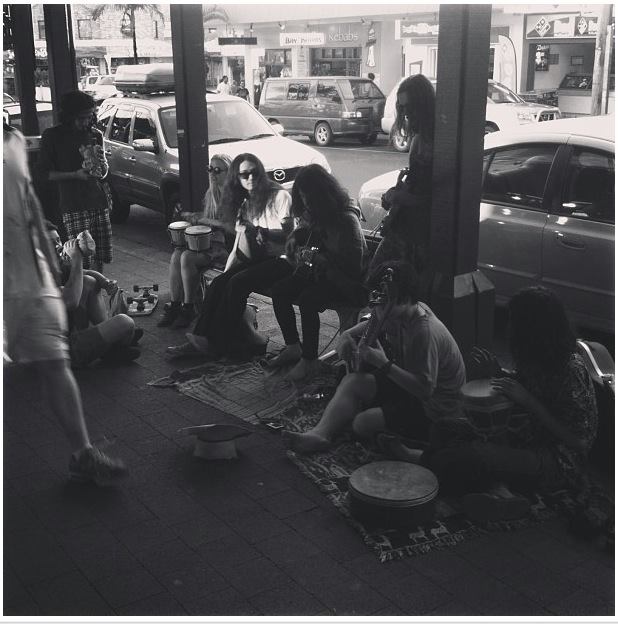
Who are some of your personal favorite bands that you’ve had a chance to share a bill with over the last few years?
Dreamtime, Bo Ningen, The Myrrors (Interview here and here), Eternal Tapestry (Interview here), and Moon Duo (Interview here).
In your dreams, who are you on tour with?
Go: Amon Düül.
Ryu: The Beatles.
Daoud: The Grateful Dead.
Tomo: Far East Family Band or Taj Mahal Travellers.
Kotsu Guy: Pärson Sound (Interview here).
Do you have any funny or interesting stories from live shows or performances that you’d like to share here with our readers?
We used a fog machine at a show in Tokyo. We couldn’t see anything around us, and right after we finished our set, we realized that the fire alarm had gone off. As the fog disappeared, we saw cops and firefighters with angry faces. We were banned from the venue. [laughs]
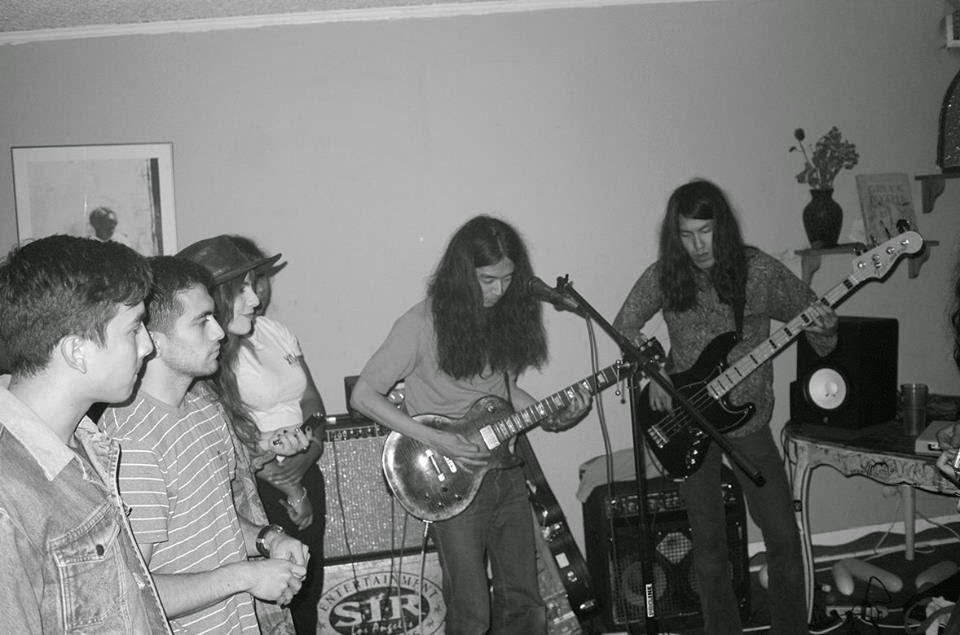
Do you all give a lot of thought to the visual aspects that represent the band to a large extranet, like flyers, posters, shirt designs, covers and other artwork? Is there any kind of meaning or message that you’re trying to convey with your art? Is there anyone that you usually turn to in your times of need when it comes to that kind of thing, and if so, who is that and how did you originally get hooked up with them?
We try to make the visual art by ourselves as much as possible. Yes, it all has meaning, but if we explain the details it wouldn’t be interesting anymore. We create the artwork as part of an entire package.
Do you have a preferred medium of release for your music? With all of the various mediums that are available to musicians today I’m always curious why they choose and prefer the various methods that they do. What about when you’re listening to and or purchasing music? If so, can you tell us a little bit about what your preference is and why you feel that way?
We prefer vinyl and digital download, because they continue to sound good for practically forever. I just don’t have good experiences with CDs, as they get scratched or the plastic case gets broken. Some of us love buying records or tapes, but some of us have never bought any music.
Do you have a music collection at all? If so, can you tell us a little bit about it?
I have some psychedelic records from the 70’s. Not that impressive, but I don’t have any records that I don’t love. The latest record that I bought was Daniel Higgs/The Godward Way.
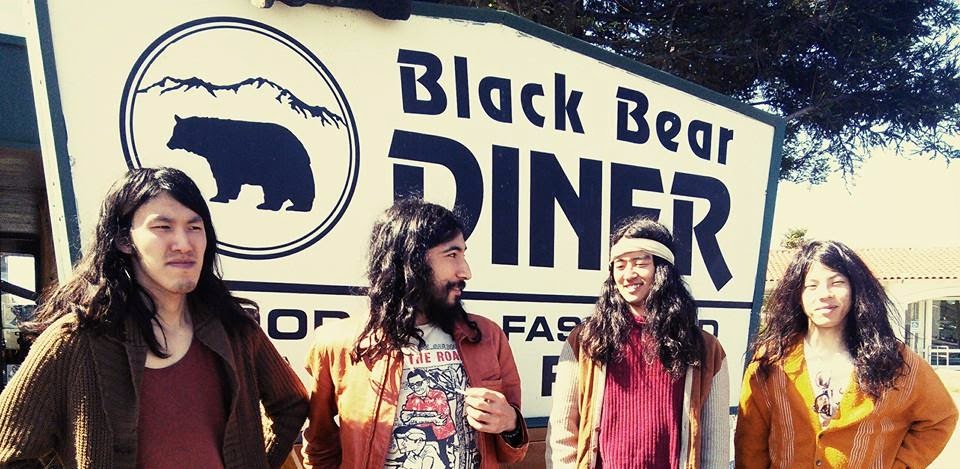
I grew up around an enormous collection of vintage psych, retro garage rock and classic blues and I was really encouraged to listen to anything that might arouse my interest from a pretty young age by my dad. There was always something magical about sticking an album on, kicking back with a set of headphones, reading the liner notes, staring at the artwork and letting the whole experience carry me off to another place. Having something to physically experience along with the music always made for a much more complete listening experience, at least for me. Do you have any such connection with physically released music?
Yes, I do. I also like the history of used records, sometimes it has someone’s name on it and I like to imagine what kind of person he/she was…
As much as I love my collection of album I was never really able to take much of it on the go with me before. Digital music has not only changed all that, but when you team it with the internet, you have a real game changer on your hands! Together they’ve exposed people to the literal world of music that’s all around them and created an unparalleled level of communication between bands and their fans. Nothing is ever black and white though and while people are being exposed to all of this music they’re not necessarily paying for it anymore. Illegal downloading is running rampant right now and some people feel like music is quickly becoming a disposable thing to be experienced and then forgotten and discarded, not to mention it’s harder than ever to get noticed in the chocked digital jungle out there. As a musician during the reign of the digital era, what’s your opinion on digital music and distribution?
I’m not against digital music, because it gives us access to a tremendous amount of music that we would have never been able to listen to otherwise. However, musicians spend lots of time and money on recording those albums. I think that if you love music, you should support what you love by paying five dollars. That means a lot to bands like us.
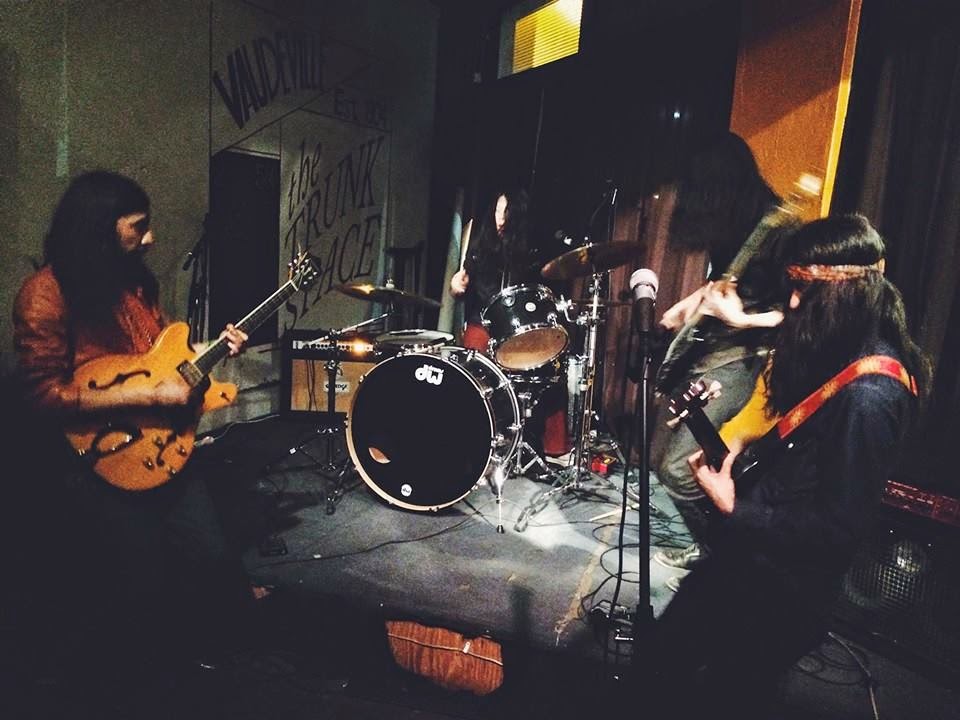
I try to keep up with as much good music as I can but there just isn’t enough time in the day to sift through half a percent of the amazing stuff that’s going on out there right now. Is there anyone from your local scene or area that I should be listening to I might not have heard of?
We just launched a record label called Guruguru Brain, mainly focusing on the Asian underground music scene. We put out a free compilation on Bandcamp. More releases to come!
Thanks so much for taking the time to talk to me it’s been awesome getting to know so much about you all and the band! I’m stepping out on a limb here but I doubt think there’s anything I could have missed, I kind of tossed everything and the kitchen sink at you all, but before we call it a day is there anything I might have possibly missed or that you’d just like to take this opportunity to talk to me or the readers about?
We really appreciate your support. Our gigs are totally different than our records, so please come see us if you have a chance!
– Roman Rathert
DISCOGRAPHY
(2013) Kikagaku Moyo – Kikagaku Moyo – digital, 12” – Cosmic Eye/Sound Effects Records (12” Limited to 350 copies, 200 copies on Black Vinyl and 150 copies on Brown Splatter Vinyl)
(2014) Kikagaku Moyo – Forest Of Lost Children – digital, 12” – Beyond Is Beyond Records (12” Green Vinyl with Swamp and Bone Haze limited to ? copies)
(2014) Kikagaku Moyo – Mammatus Clouds – Cassette Tape – Sky Lantern Records (Limited to 100 hand numbered copies)


